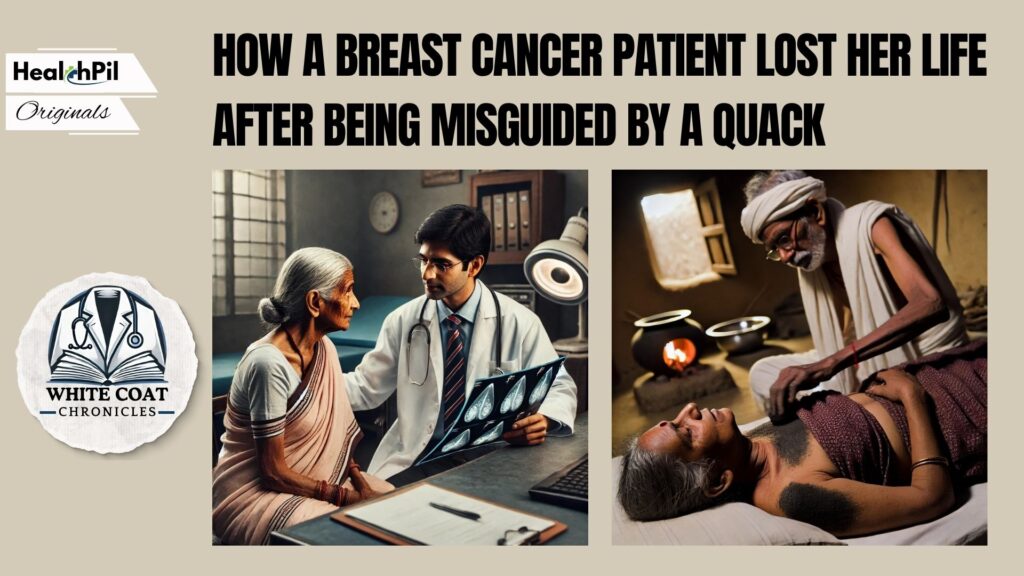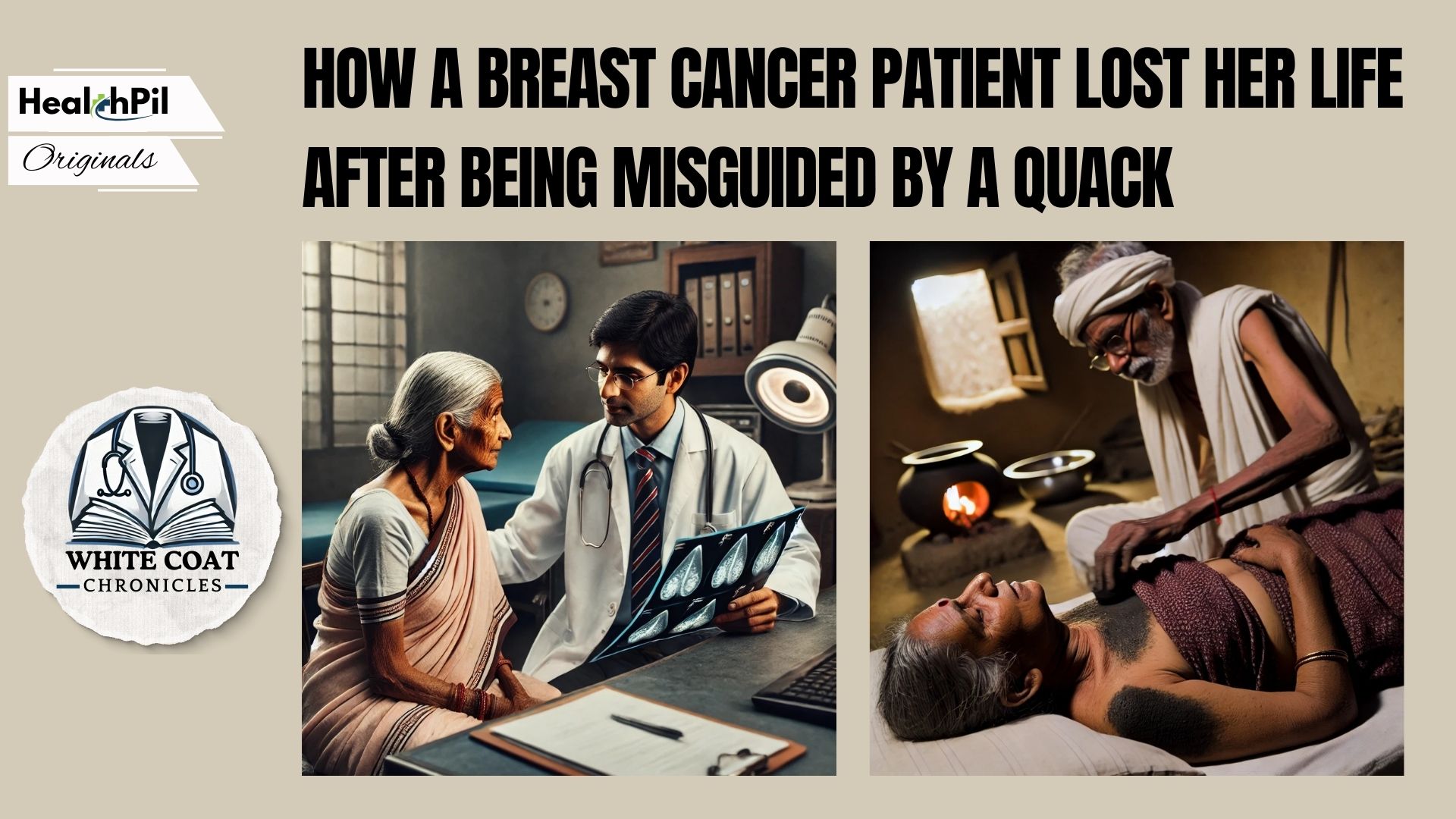
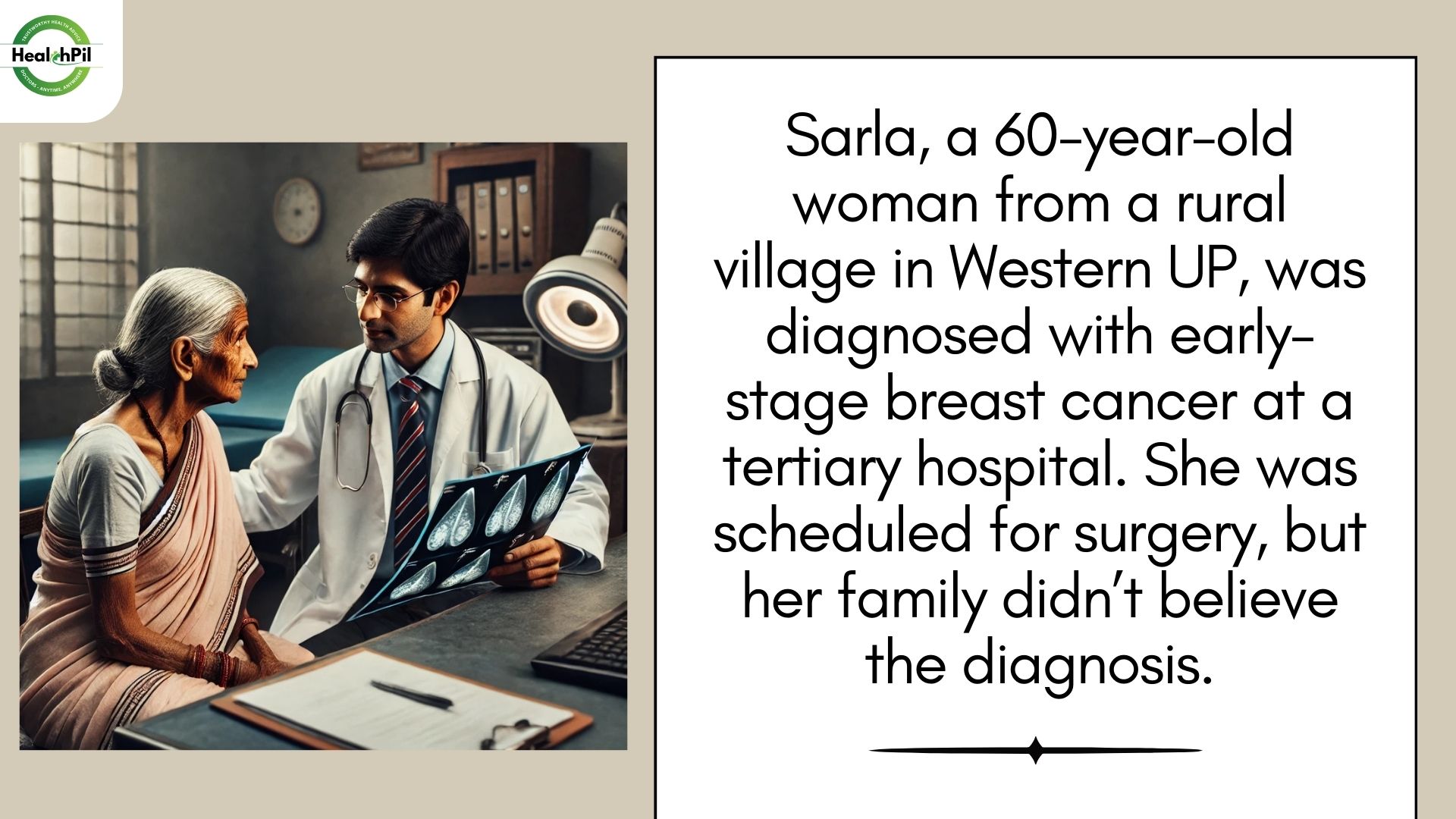
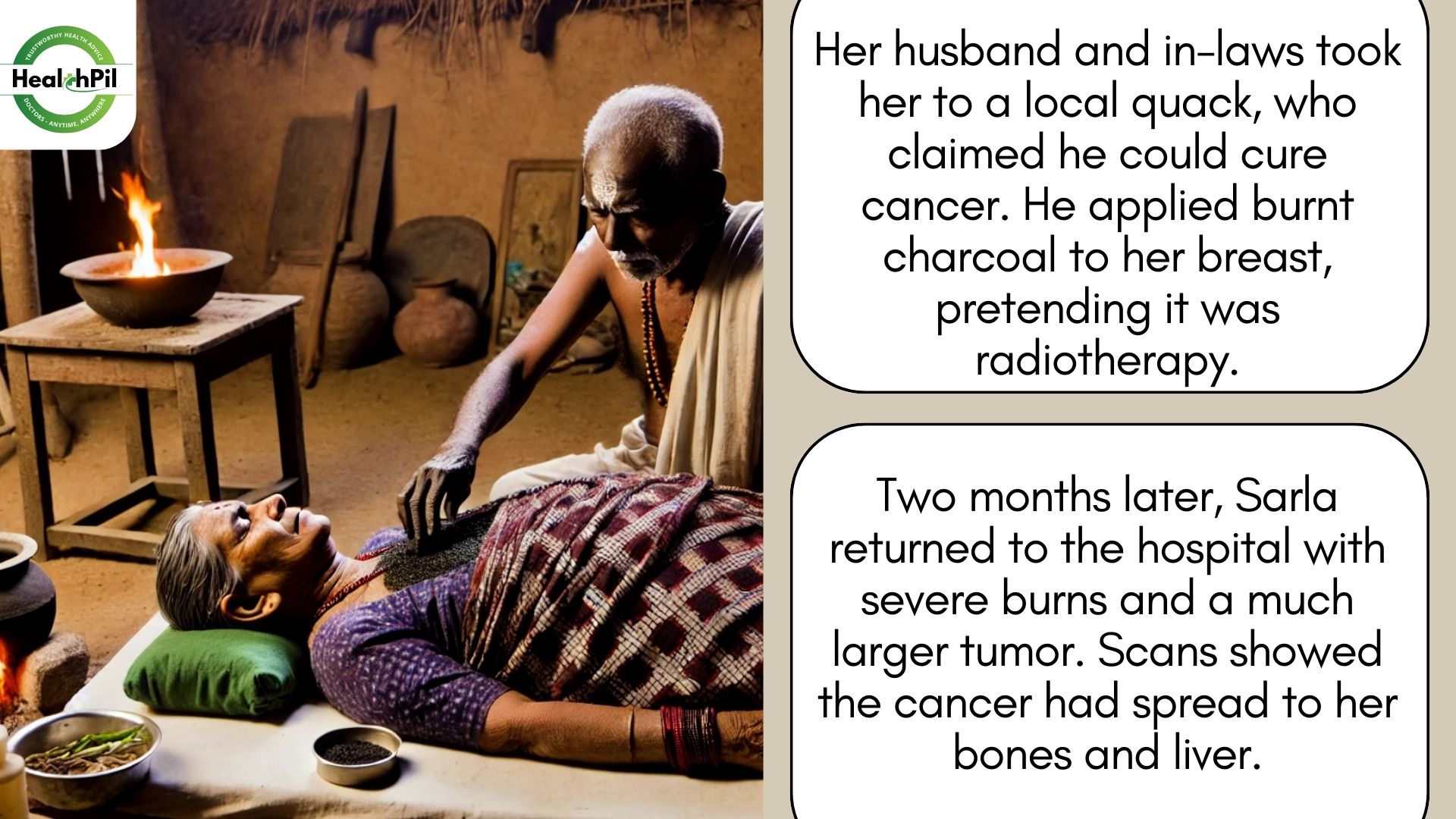
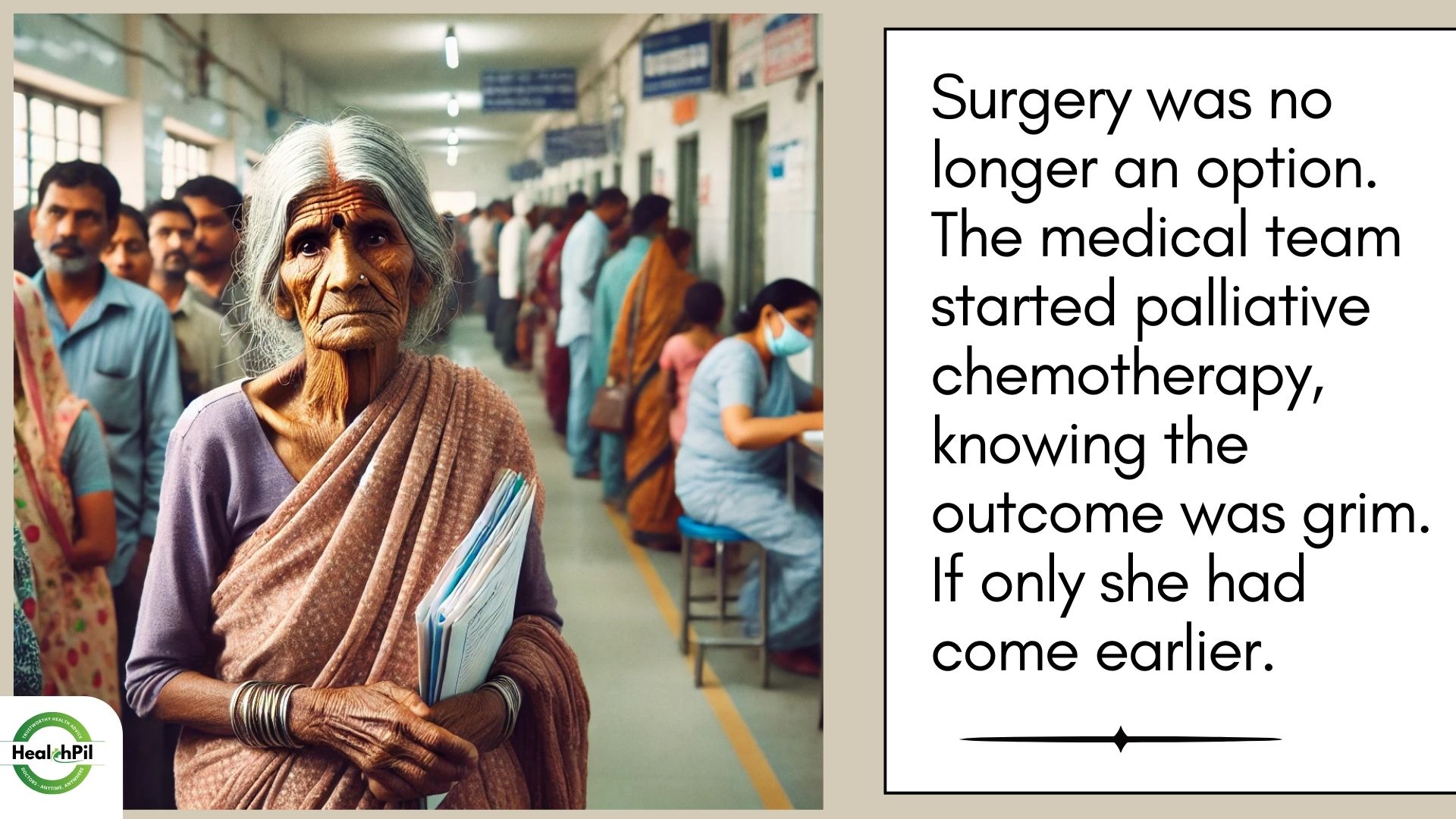
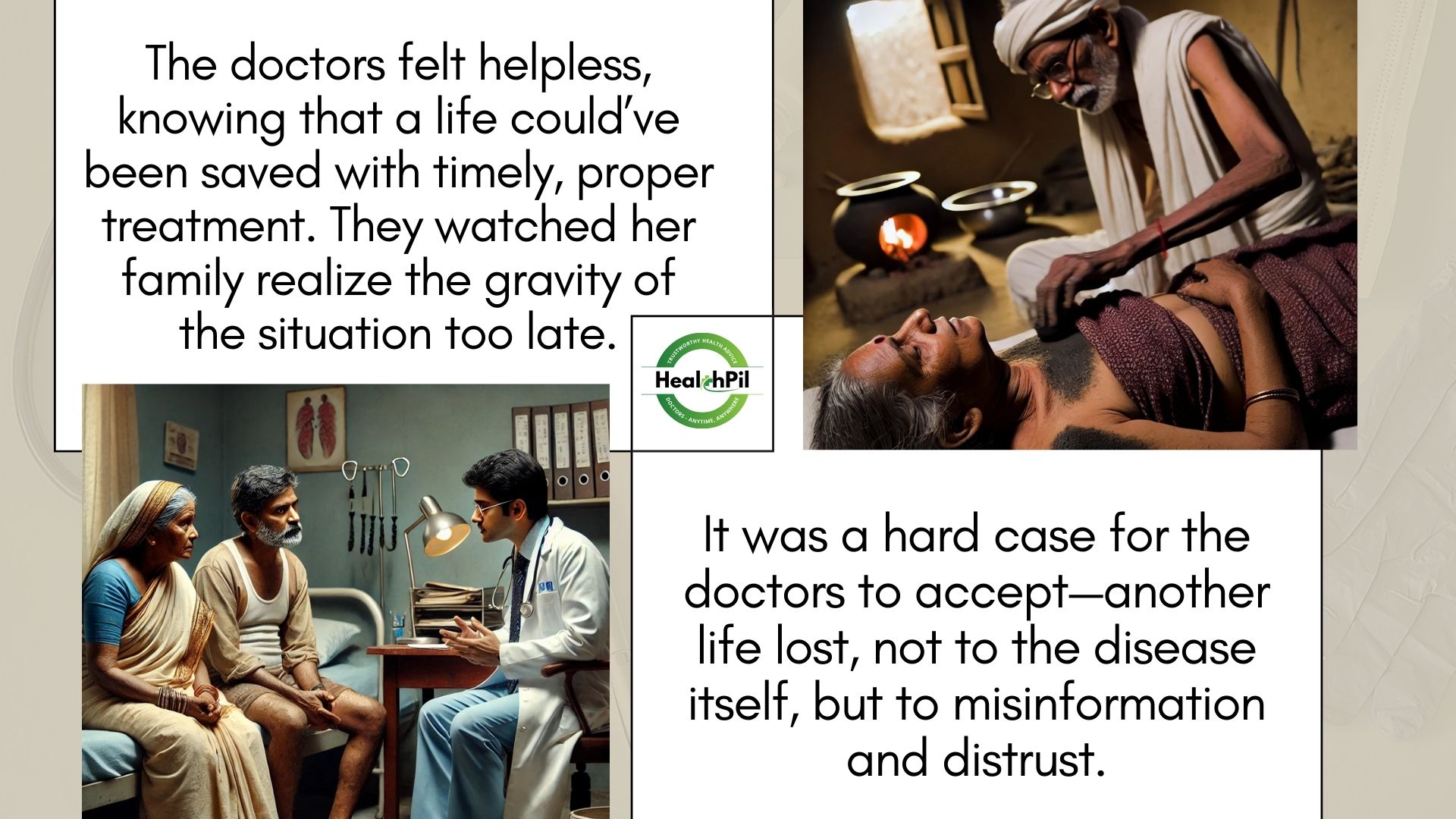
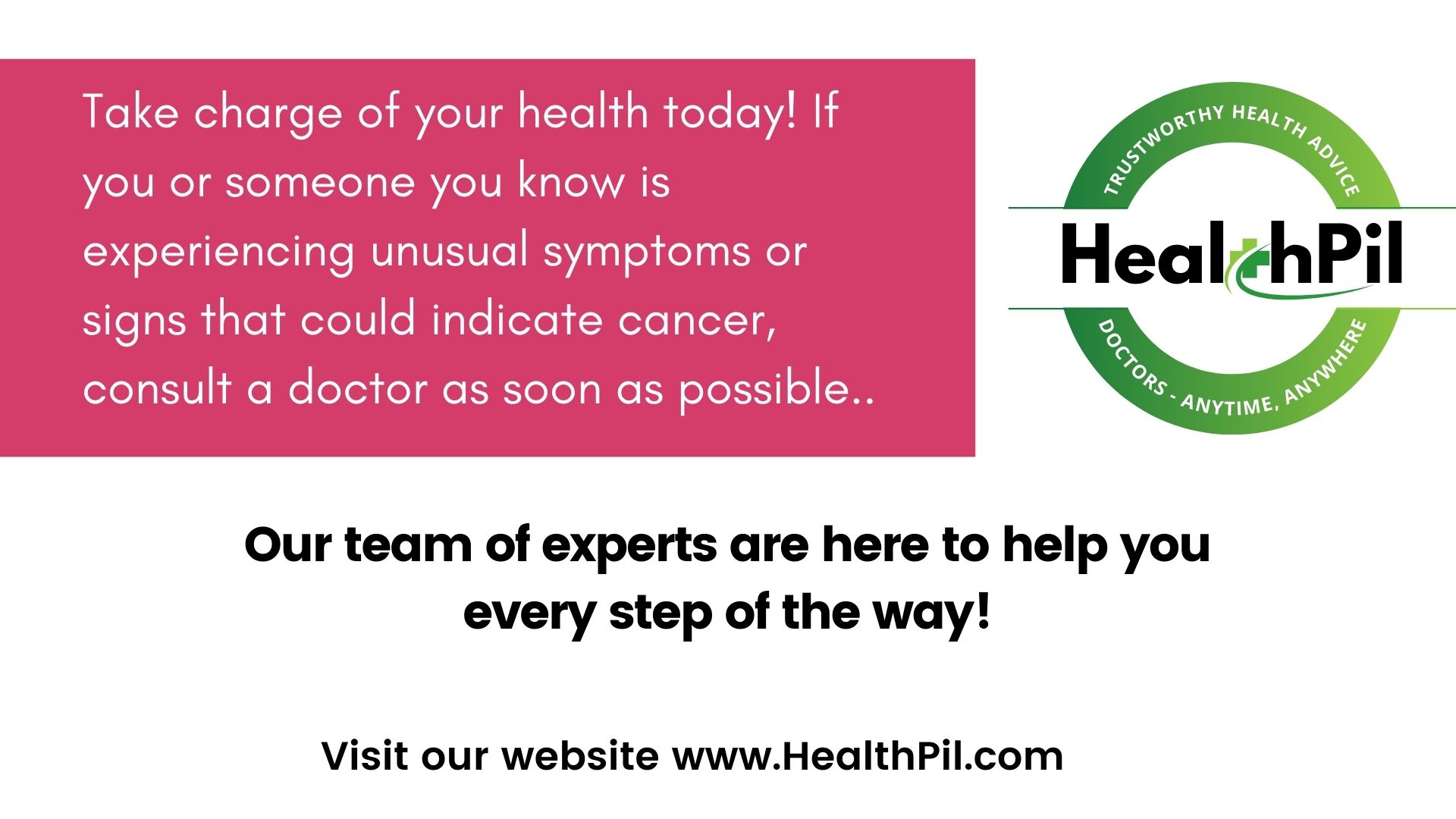
Meet Sarla (name changed), a 45-year-old woman from a rural village in Western Uttar Pradesh, whose story is a stark reminder of the devastating consequences of mismanagement in healthcare.
Sarla’s story started out with hope. She was diagnosed with early-stage breast cancer at a well-known hospital, something that could have been treated and managed if caught early. But instead of moving toward recovery, things took a heartbreaking turn. She wasn’t just fighting the disease; she ended up battling the damage caused by misinformation and her family’s deep mistrust of doctors. What happened next was nothing short of devastating.
This article delves into her journey, highlighting how hope turned to tragedy when quack treatments replaced evidence-based care.
What does it means to have Breast Cancer?
Breast cancer is one of the most common cancers in women, and early detection often means significantly better survival rates. Sarla’s story is a heartbreaking reminder of what can happen when mismanagement and distrust in the medical system take over. It’s painful to think that her outcome could have been so different with the right care and faith in proven treatment options.
Sarla was diagnosed with early-stage breast cancer at a well-known hospital. The doctors suggested surgery as the best option for her recovery, giving her a sense of hope. But her family wasn’t convinced. Deep mistrust of modern medicine led them to question the diagnosis.
Under pressure from her husband and in-laws, Sarla reluctantly went along with their decision to see a local quack who promised a miracle cure. This choice would change everything, taking her health down a dangerous path.
How a Quack ruined her chances of Recovery!
The local quack claimed he could cure Sarla’s cancer, but all he offered were lies. Instead of real treatment, he applied burnt charcoal to her breast, pretending it was radiotherapy. Desperate for a cure, Sarla believed in the quack’s promises, unaware that she was gambling her recovery on false hopes.
Week after week, her condition worsened. The so-called treatment did nothing to stop the cancer, and the tumour continued to grow. Her family, still convinced by the quack’s assurances, didn’t grasp how dire the situation was, until it was too late.
The Return to the Hospital – But too late!
Two months later, Sarla came back to the hospital, but this time, it was a completely different story. The burns on her skin from the quack’s so-called “treatment” were horrifying to see. Scans showed the cancer had spread to her bones and liver. What was once a manageable situation had spiralled into something far worse. Her prognosis was now grim.
Surgery was no longer on the table. The doctors had to focus on palliative chemotherapy, which is basically about keeping her comfortable rather than curing the disease. It was heartbreaking to know there wasn’t much else they could do for her.
The Doctors’ Perspective
For the doctors, Sarla’s case was more than just another tough day at work—it was devastating. They weren’t just up against cancer; they were fighting the ripple effects of misinformation and mistrust in modern medicine. Watching her family realize how bad things had gotten—way too late—was gut-wrenching for everyone in the room.
The worst part? Knowing this could’ve all been avoided. If Sarla had stayed with the original treatment plan, there was a real chance she’d be recovering instead of suffering.
For the medical team, it was yet another painful reminder of how dangerous misinformation can be and how easily it can cost someone their life.
Sarla’s story is more than just a personal tragedy.
It’s a wake-up call for how critical it is to trust medical professionals and stick with evidence-based treatments. This didn’t have to happen, and that’s what makes it so hard to accept.
A Call for Awareness and Education
Sarla’s heartbreaking story highlights the urgent need for better awareness and education in healthcare, especially in rural areas where reliable medical information is hard to come by. Building trust in qualified medical professionals and emphasising the value of timely treatment can make all the difference and ultimately save lives.
At HealthPil, we are dedicated to providing reliable health information and connecting individuals with qualified healthcare providers. Remember, the information in this article serves as a reminder of the importance of seeking professional help and should not replace medical advice.
Take control of your health! If you have concerns about your well-being, don’t hesitate to reach out to a healthcare professional for guidance and support.
FAQ : Breast Cancer and Misinformation
What are the dangers of relying on unqualified medical practitioners?
Delayed or incorrect treatment can lead to complications, like metastasis in cancer cases.
How effective is early breast cancer treatment?
When detected early, breast cancer is highly treatable through surgery, chemotherapy, or radiotherapy.
What is palliative chemotherapy?
It’s a treatment used to alleviate symptoms in patients where curative options are no longer viable.
What can patients do to avoid falling for misinformation?
Always seek a second opinion from a qualified healthcare provider, and ensure treatments are evidence-based.

